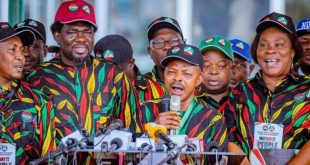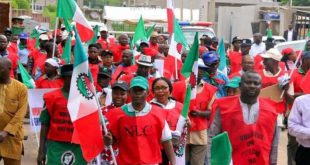There are indications that MPC will most likely leave all rates unchanged. While the October inflation report may show an increase in inflation, expected spending has not kicked in yet.The Central Bank’s Monetary Policy Committee (MPC) will meet for the last time this year on Wednesday and Thursday this week.
The meeting earlier scheduled for Monday and Tuesday, 19th & 20th November was shifted due to a public holiday declared by the Federal Government to mark the Eid El Maulud.
However, three (3) out of these seven (7) members voted to raise the Cash Reserve Requirement (CRR) by 150 basis points, an indication that left to them, we should have tightened. The other three (3) members voted to tighten through raising the MPR by 25 basis points.
The committee’s primary tools of doing so, are the Monetary Policy Rate, Liquidity ratio and Cash Reserve Ratio.
MPR is the interest rate at which CBN lends to the commercial banks. The MPR is the benchmark against which other lending rates in the economy are pegged and is usually used as an instrument to moderate inflation in the economy.
CRR simply refers to the ratio of customer deposits (i.e. your money in the bank) banks are expected to hold as cash or keep with the CBN.
Liquidity ratio refers to the amount of highly liquid assets that banks should hold in order to meet their financial obligations to customers.
Analysts had mixed opinions regarding what the CBN should do next. From a sample size of three analysts taken, one was for MPR to be increased, while the other two were of the opinion that it should be left at current rates.
To these analysts, a hike in the MPR was necessary in order to keep the large volume of dollars that would accrue to foreign holders of fixed income securities within the country. A tweak in the CRR would also not be out of the question.
To another analyst, despite the increased call for tightening, there was no need for hiking the MPR as it had little or transmission effect to the real economy. Other methods such as OMO and the current effective CRR method would be more effective in controlling money supply. While CRR is currently at 22.5%, the CBN’s computation method brings it closer to 33% for most banks.
 YouNewsng Discover. Succeed. Enjoy
YouNewsng Discover. Succeed. Enjoy








